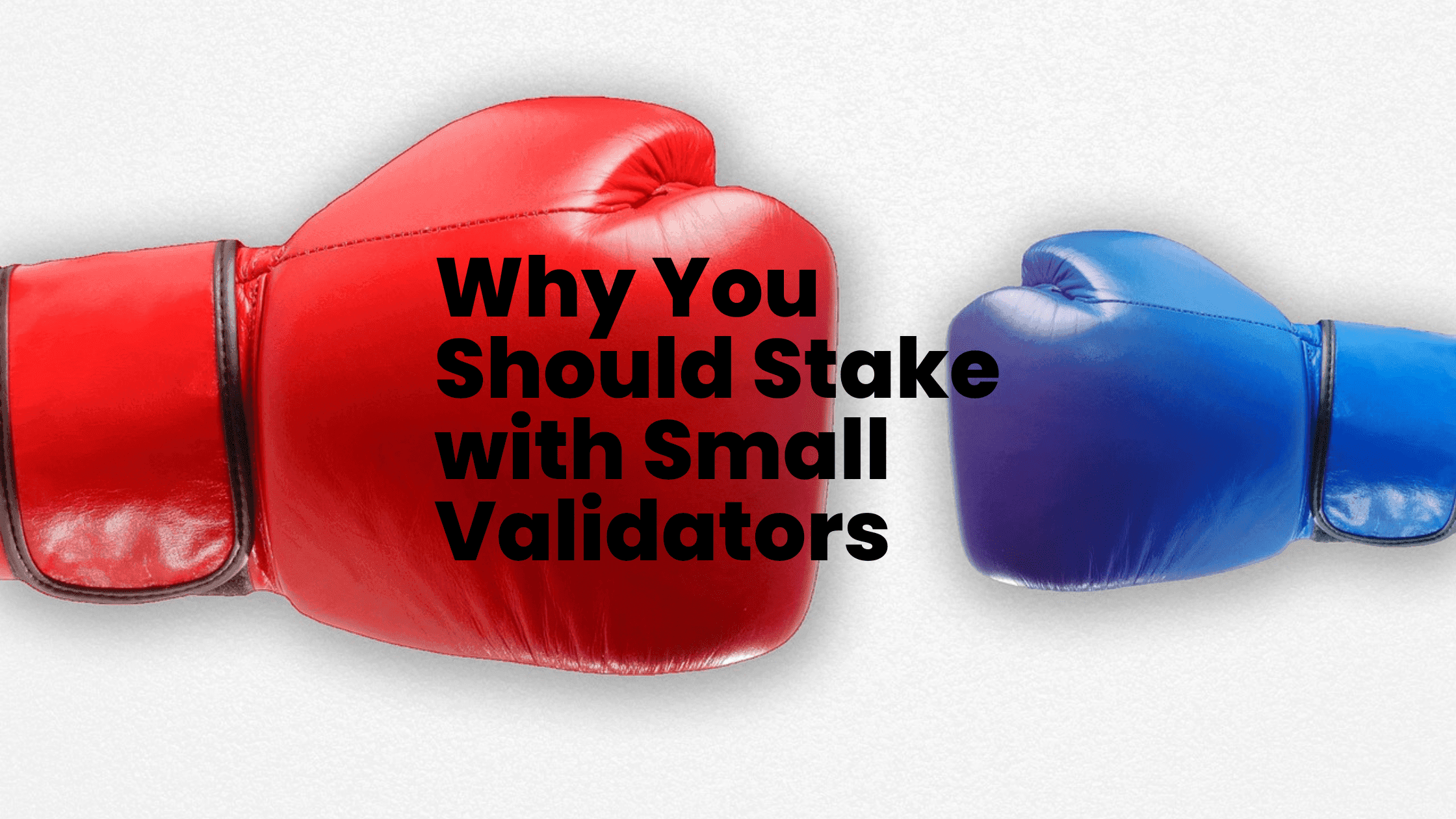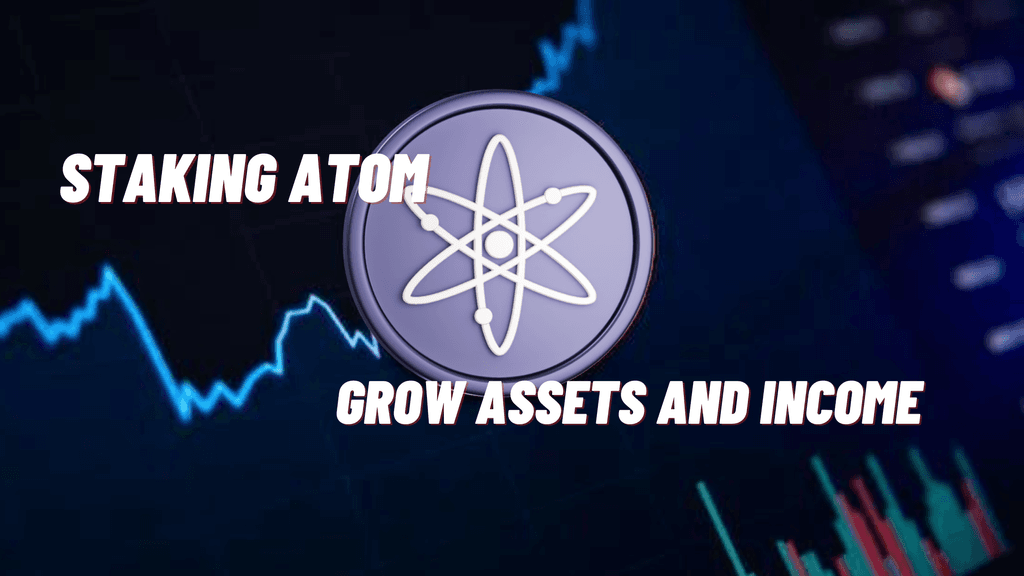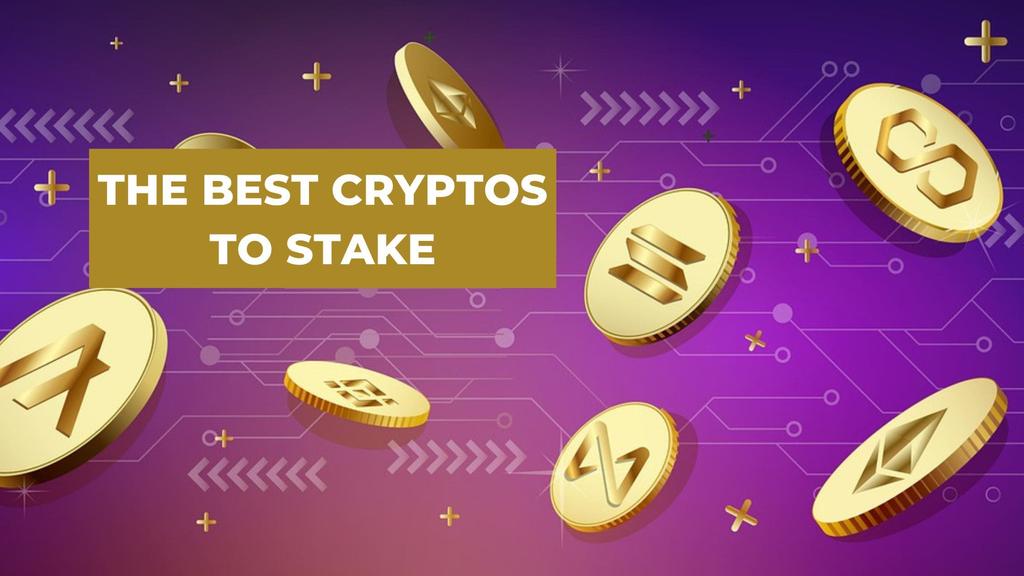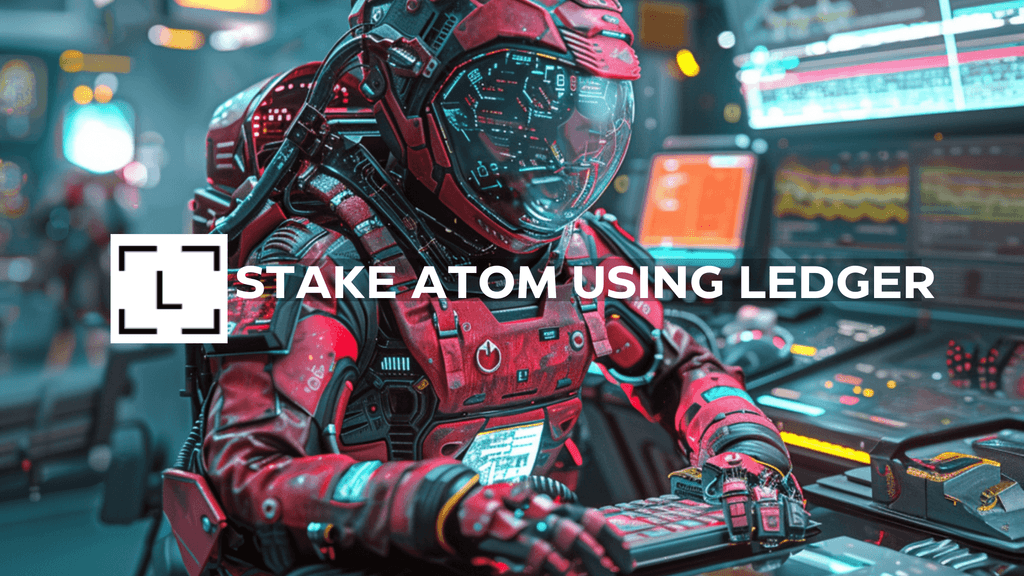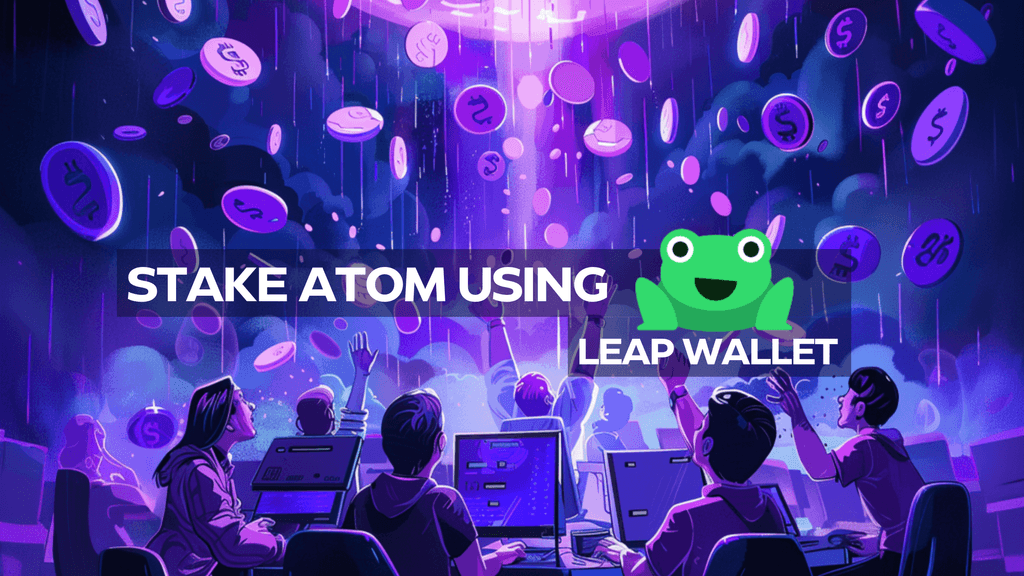Why It’s Important to Stake With Small Validators
This is article 10/11 in Part II of our series, How To Build Wealth and Grow Crypto Assets and Income by Staking.
This article is also available on our blog.
To read the eighth article in this series click here. To read the final article in this series click here.
Key Takeaways
- Small validators help networks to decentralize.
- Staking with small validators increases network security.
- Supporting smaller validators promotes fairness.
- Staking with smaller validators promotes competition.
- Small validators help communities grow and often provide ideas for innovation.
- Staking with small validators helps sustain the network.
- Small validators often provide a voice for the broader community.
- Staking with small validators encourages new validators to join the network.
Why is it important to stake with smaller PoS validators?
One of the main issues facing PoS blockchains is the centralization of voting power. It’s a huge problem.
Staking with centralized exchanges, like Coinbase or Binance is super convenient. So, people stake directly from those platforms without knowing what they compromise.
Be sure to read our article: Why You Should Not Stake ATOM With Coinbase.
Wallet providers are also largely to blame because they display validators based on total stake. The largest validators are at the top of the list and the smallest validators are at the bottom.
Delegators then see a huge number of tokens staked with top validators and assume staking with them is the safest bet, so they delegate to them too. This makes networks weaker and easier to attack.
It is important to stake with smaller validators because it increases the overall health and decentralization of the network.
Some key benefits of supporting smaller validators

1. Decentralization: The fundamental principle behind blockchain technology is decentralization. By staking with smaller validators, you contribute to a more balanced distribution of power and influence within the network, preventing centralization and ensuring the network remains secure and resilient.
2. Security: Decentralization increases the network’s security. If too many tokens are staked with a few large validators, networks are more vulnerable to attacks, censorship, and manipulation. By staking with smaller validators, you can help distribute the risks and increase the network’s overall resilience.
Do you really want the Coinbase, Binance, and Kraken validators dominating all the most popular blockchains? What happens if they’re hacked, go insolvent, or governments force them into rigid regulation?
3. Fairness: Staking with smaller validators promotes fairness in the consensus process. A more diverse and decentralized validator set ensures that no single entity or group can easily dominate the network, which could lead to the manipulation of transaction processing and reward distribution.
The largest validators create most of the blocks and thus earn a greater percentage of rewards. This further centralizes and weakens the network.
4. Competition: Encouraging a diverse group of validators promotes competition, which leads to better performance, lower fees, and improved services for users. A healthy ecosystem of validators ensures they are all incentivized to continually improve and maintain high standards.
5. Supporting innovation and community growth: Smaller validators may have unique perspectives, ideas, and proposals that can positively impact the network’s development. By staking with them, you support these potential contributions and foster the growth of the broader community.
6. Validator sustainability: Small validators need support to maintain their operations and continue providing services to the network. By staking with them, you contribute to their sustainability and ensure their participation in the ecosystem, keeping it diverse and robust.
Take pride in paying reasonable commission and supporting your validator. Profitability allows us to run the best equipment and reliably earn rewards.
DO NOT STAKE WITH 0% COMMISSION VALIDATORS.
7. Better representation: A diverse and decentralized group of validators means better representation of the network’s stakeholders. This ensures that the network’s decisions and actions are more likely to align with the interests of the broader community, as opposed to being influenced by a few dominant entities.
HydraDX and Polygon governance proposals are fairly new, but we have an extensive track record of voting on Cosmos Hub and Kava proposals.
8. Encouraging new entrants: By staking with smaller validators, you encourage new entrants to join the network as validators. This helps maintain a dynamic ecosystem that continually adapts and improves. New validators bring fresh ideas, expertise, and perspectives.
To summarize, staking tokens with smaller validators supports the fundamental principles of blockchain technology, like decentralization, security, and fairness. This creates a healthy, diverse, and robust ecosystem that benefits all network participants.
What are the risks of staking with smaller validators?

While staking PoS tokens with smaller validators has numerous benefits, there are some risks to consider:
1. Lack of reputation: Smaller validators might not have an established reputation or track record, making it harder for delegators to assess their competence, reliability, or trustworthiness.
Delegators might inadvertently support poorly performing or malicious validators.
This is one reason we tell people not to stake with anonymous validator nodes. Verify they have a name, website, social media presence, and a way to contact them.
Check out our article: How to Choose a Validator.
2. Slashing risks: In some PoS systems, validators and their delegators can be penalized, or “slashed,” for validator misbehavior or failure to meet network requirements. Lacking expertise and resources could lead to downtime or key mismanagement and delegators could face a higher risk of losing a portion of their staked tokens.
While these risks exist, it is essential to remember that the overall health and security of the PoS network rely on having a diverse and decentralized group of validators.
Conclusion
Stakers should assess the risks and then consider supporting smaller validators to promote a balanced and resilient ecosystem. It is a good practice to diversify your stake among multiple validators to hedge risk too.
There’s a lot to know but it’s fun since Web3, blockchain, and crypto are so fascinating. We hope you have enjoyed the article series and learned something too. If you would like to stake tokens with us at Blocks United, we’d be honored to have you as a delegator.
Be sure to check out the final article in part I of this series: Tax Implications and Regulations Surrounding Staking.
Then, check out PART II in this series: Grow Crypto Assets and Income by Staking.
Nothing we say is financial advice or a recommendation to buy or sell anything. Cryptocurrency is a highly speculative asset class. Staking crypto tokens carries additional risks, including but not limited to smart-contract exploitation, poor validator performance or slashing, token price volatility, loss or theft, lockup periods, and illiquidity. Past performance is not indicative of future results. Never invest more than you can afford to lose. Additionally, the information contained in our articles, social media posts, emails, and on our website is not intended as, and shall not be understood or construed as financial advice. We are not attorneys, accountants, or financial advisors, nor are we holding ourselves out to be. The information contained in our articles, social media posts, emails, and on our website is not a substitute for financial advice from a professional who is aware of the facts and circumstances of your individual situation. We have done our best to ensure that the information provided in our articles, social media posts, emails, and the resources on our website are accurate and provide valuable information. Regardless of anything to the contrary, nothing available in our articles, social media posts, website, or emails should be understood as a recommendation to buy or sell anything and make any investment or financial decisions without consulting with a financial professional to address your particular situation. Blocks United expressly recommends that you seek advice from a professional. Neither Blocks United nor any of its employees or owners shall be held liable or responsible for any errors or omissions in our articles, in our social media posts, in our emails, or on our website, or for any damage or financial losses you may suffer. The decisions you make belong to you and you only, so always Do Your Own Research.
